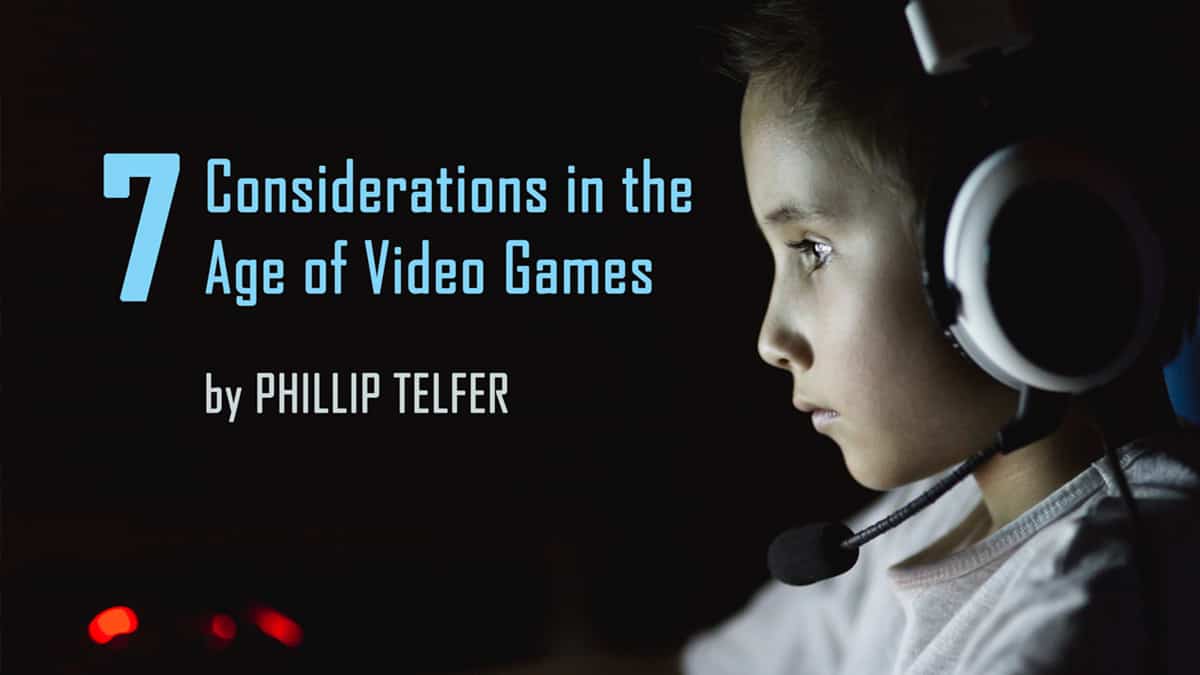
Replace Vs. Take Away

The late preacher A.W. Tozer once wrote about the media distractions of his time, circa 1950’s, “‘Commune with your own heart upon your bed and be still’ is a wise and healing counsel, but how can it be followed in this day of the newspaper, the telephone, the radio and the television? These modern playthings, like pet tiger cubs, have grown so large and dangerous that they threaten to devour us all. No spot is now safe from the world’s intrusion.”
Parents reading this article might come to the revelation that they have allowed things into the home that are now taking over and devouring their family. What do you do? It’s not just parents either, maybe you are a young person who realizes that you have been taken captive by media and entertainment. What do you do?
One suggestion is to replace versus take away. Don’t merely ax certain things unless you are prepared to replace that activity and time with something better. For parents, this starts with babies and toddlers. It has become way too convenient to put an infant in front of a screen as the electronic baby sitter. According to Dr. Dimitri Christakis, the average age a child begins watching TV in the U.S. is four months old! Why not three months? Because a baby at four months can sit up on their own. That particular issue has been overcome by baby toy manufacturers who have designed bouncy seats and potty chairs to hold a digital tablet. The average child under three years old watches three to five hours of TV each day.
When I interviewed Dr. Dimitri Christakis for my documentary, Captivated, he shared about research, which shows that for every hour a child under three watches TV each day, they are ten percent more likely to develop attention problems by the time they start school. That means that a child watching five hours of TV per day is fifty percent more likely to develop ADD or ADHD compared with the child who doesn’t watch any television. What should a parent do instead? If you are a young person what should you do when you are older and start raising a family? Spend that time interacting! Read to them, play with them, sing to them, take lots of strolls, see lots of things; real things. Let them handle real things. This principle of replacing versus taking away works better the younger a child is: setting a better trajectory than letting children orient their lives to a screen. But what if you didn’t do that? What if you were oriented to screens as a child and it’s your comfort zone?
Unplugging is one step, but filling that new void with something better is the critical follow-up step. The big challenge is that it will take more work. It’s convenient to plop on a couch, turn a device on and zone out. It takes more work to plan a craft or an outdoor activity, clear a table to accommodate a puzzle, unearth the board game, put air in the flat tires for a bike ride, plot the journey to the park, assemble the model, fly the kite, read aloud, or endure the process of learning an instrument or listening to someone learn an instrument!
We are not a screen-free family, but my children have grown up without broadcast or cable TV and without video games, and their lives are not boring. They went from playing with toys to making toys in our wood shop. My son and I build and crash model RC airplanes. They all enjoy learning instruments, baking in the kitchen, playing the outdoor game of kubb, and the list could go on. Here’s the catch: it means more from Dad and Mom. More time, more energy, and often more money, than passively spending time in front of a screen. The big question is whether or not it is worth the extra effort. I could tell you that it is, but that’s not the same as experiencing it for yourself. You’ll have to give it a try and begin a new adventure.
What about teens or young adults? This may come close to being something akin to rocket science, which can tend to suffer the agony of launches blowing up. The fear of conflict or failure can paralyze any attempts at making changes in the home.
First, sit down together as a family and talk about this. Share your concerns, your hopes, and your personal mistakes. Share about your own weaknesses and your desire to set a new trajectory in the home. Confess you failure to set certain boundaries earlier in the game, and decide together on a game plan for the future. Bob Waliszewski, director of Plugged In, has a great book on this subject called “Plugged In Parenting.” He writes about having a family entertainment constitution.
Have you ever opened a packaged product that was meticulously boxed up in such a way that it is seemingly impossible to get it all back in the box if you decide it’s something you would like to return? A similar problem can happen with media choices and certain electronic devices or types of media that have been allowed in the home, only to realize later that it was a door that would have been better left shut. It can be much more challenging to shut a door that should not have been opened in the first place, just like the packaged product that you cannot get back in the box.
The pressure on parents from teens to allow a smartphone or a gaming console may seem to be a continuous battle not worth fighting. The white flag is often raised when parents are overwhelmed by the powerful alliance with new cultural norms: “But everyone has one…” or “But Johnny is allowed…” For many parents who have raised that flag of surrender, they now are faced with a bigger battle of rescuing their POW’s caught in the digital conflict. Some war torn families just mourn the defeat and do nothing. Don’t surrender. The battle is not against your children. The battle is for their hearts and minds. The war zone has reached our doorsteps and you cannot remain complacent.
In order to win this battle, don’t just take things away. Make it a new endeavor to go and enjoy the great outdoors: go throw a Frisbee, swing a bat, catch a ball, take a walk or a hike, ride your bike, smell the flowers, enjoy a sunset, make a snowman, make a pile of leaves and jump in them, fly a kite, build a sand castle, or any other activity you like to do but have not taken the time to enjoy because you are so occupied with your assortment of electronic screens. In the process you’ll burn some calories, gain some health and probably feel better about life in general.
NOTE: This article is from a chapter in Phillip’s book “Media Choices: Convictions or Compromise?”
More Articles by Phillip Telfer
7 Considerations in the Age of Video Games
by Phillip Telfer
Fixed on the Right Goal
by Phillip Telfer
A Balanced Media Diet
by Phillip Telfer
Boys, Snakes, and Insatiable Media Appetites
by Phillip Telfer
The Power in Unplugging
by Phillip Telfer
Entertainment: Handle With Care
by Phillip Telfer

Convictions or Compromise?
by Phillip Telfer

Finding Freedom in a Media Captive Culture
by Phillip Telfer

Media Saturation Threshold
by Phillip Telfer

A Titanic Lesson
by Phillip Telfer

Becoming Desensitized
by Phillip Telfer

Web 2.O Woes
by Phillip Telfer

Media Discernment Challenge
by Phillip Telfer

Dear Santa
by Phillip Telfer

Christianity and Entertainment in the 3rd Century
by Phillip Telfer

Abstinence Doesn't Work?
by Phillip Telfer

Phillip Telfer
President
Phillip Telfer has ministered to youth and families for over 20 years, sharing at camps, retreats, schools, conferences, and churches around the country. He is the director of Media Talk 101 which is a non-profit ministry dedicated to teaching media discernment in the light of following Christ. Phillip recently authored the book “Media Choices: Convictions or Compromise?” He also produced and co-directed the award-winning documentary Captivated and founded the annual Christian Worldview Film Festival and Filmmakers Guild. Phillip is passionate about family-integrated church and ministry and serves as the teaching pastor at Living Water Fellowship in Bulverde, TX. He and his wife Mary have been happily married for 26 years and have been blessed with four children and one grandchild.






